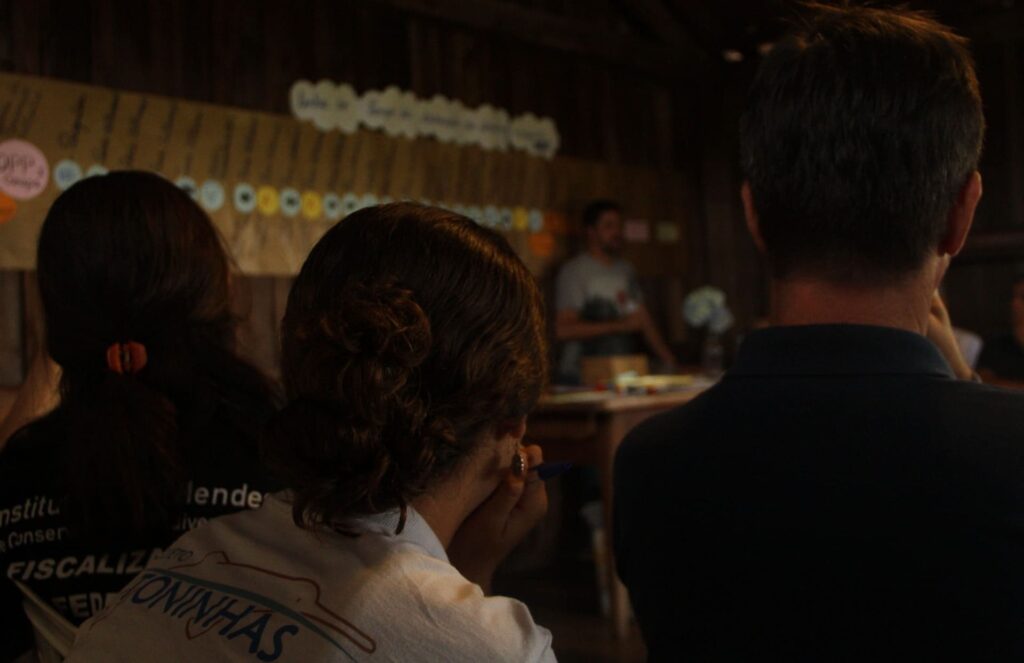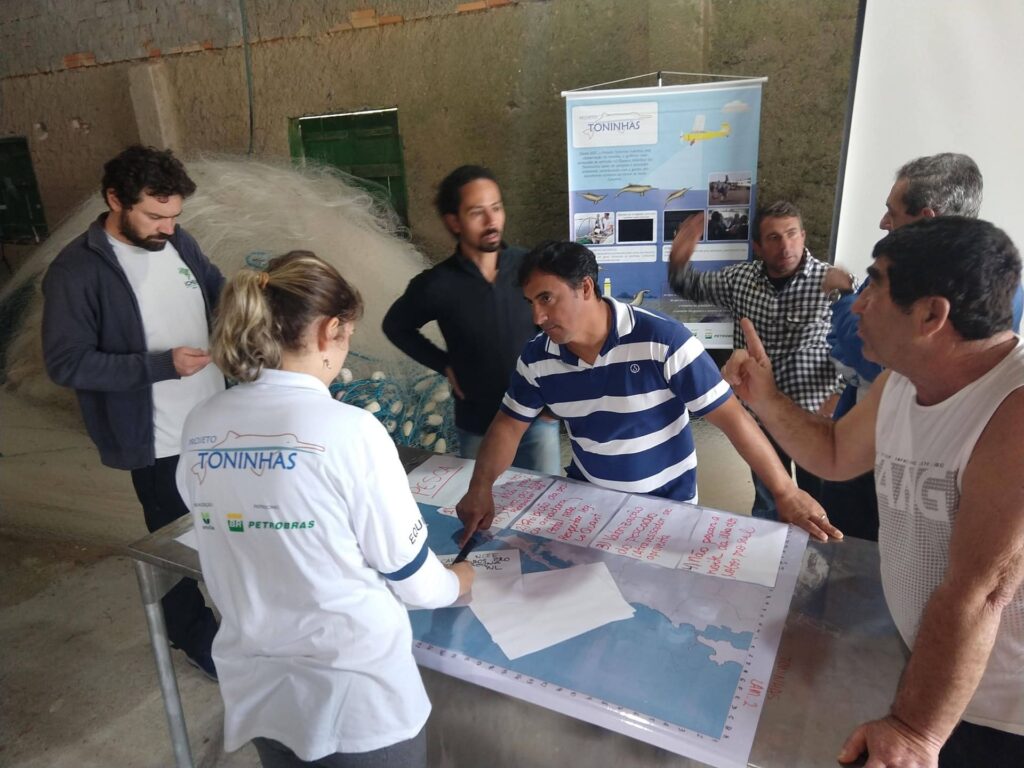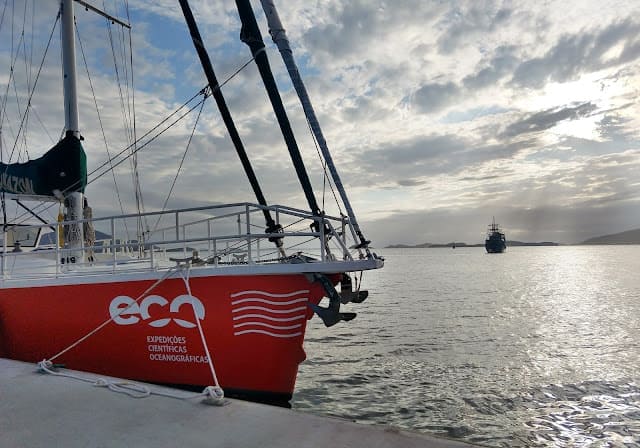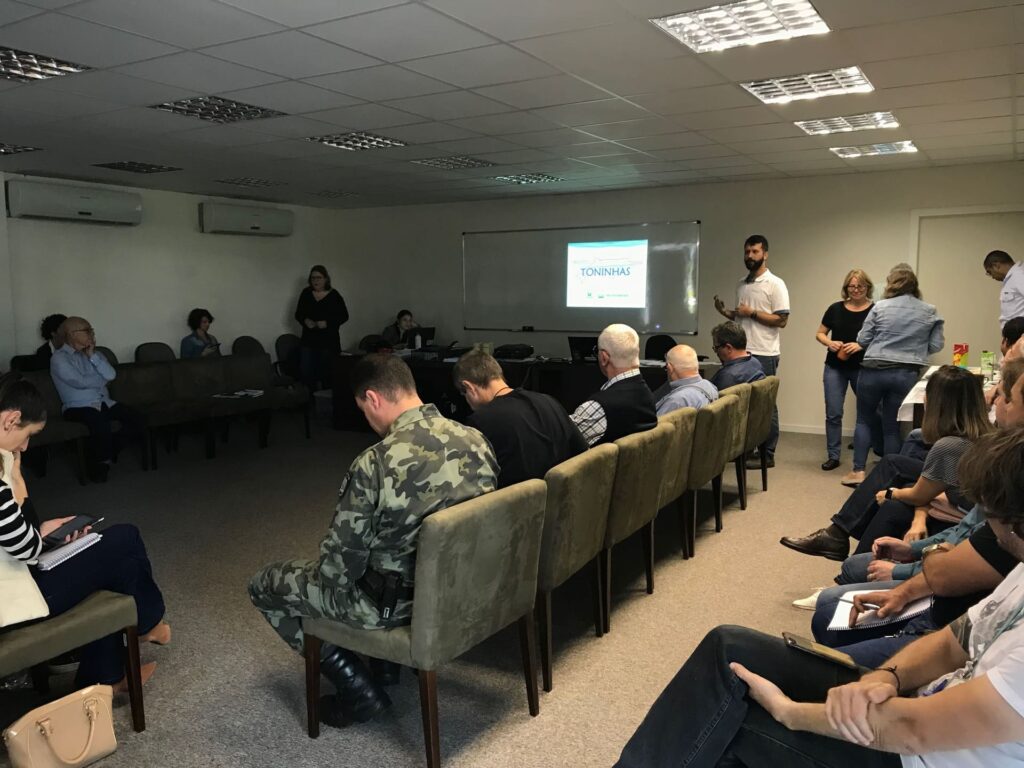The National Action Plans (PANs) are a public policy in Brazil and serve to guide the research and management actions necessary to reverse the situation of endangered species. The proposed actions are the shared responsibility of public authorities and civil society, as protecting our biodiversity is everyone’s commitment. Members of Toninhas do Brasil participated in the elaboration process of the National Action Plan for the Conservation of the Franciscana (PAN Toninha), acting as articulators and collaborators in several actions, and participated in the Technical Support Group (Grupo de Apoio Técnico – GAT) of this plan. Actions include research, monitoring, environmental education and management of ecosystems and fisheries, in addition to the implementation of new public policies.
Internationally, the project contributed to the construction of the Conservation and Management Plan of the International Whaling Commission, which seeks to guide the countries involved with respect to the actions necessary for the conservation of the species, in an integrated and collaborative manner.

The sustainability of fishing is everyone’s goal, because it is only through it that we will achieve a productive, diverse and balanced ocean. It is from this perspective that Toninhas do Brasil hopes to contribute, aiming at reducing bycatch of non-target species, more specifically small cetaceans such as the franciscana. To this end, the project has been making efforts to expand knowledge about artisanal fishing activities in different territories of São Paulo, Paraná and Santa Catarina, either by monitoring fish landing, or through local ecological knowledge; and seeking strategies to reduce bycatch.
There are different approaches to bycatch reduction that are already being used in other countries. However, at this stage of the project, our focus is on the use of acoustic alarms, which have the potential to alert the franciscanas and prevent them from approaching the nets, without compromising fishing. Our pilot project, which is in progress, aims to evaluate the effectiveness and feasibility of alarms in a real fishing situation in Brazil, with the collaboration and experience of fishermen.


